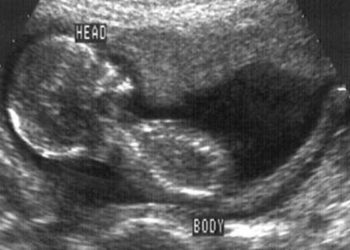Young cancer survivors may not understand impact of treatment on future fertility
1. Only 13 percent of female cancer survivors reported feeling informed about fertility preservation options.
2. Up to 62 percent of female cancer survivors surveyed reported unmet information need across a range of fertility topics and unmet need correlated with likelihood of pursuing post cancer treatment fertility preservation.
Evidence Rating Level: 2 (Good)
Study Rundown: More than 60 000 young adults are diagnosed with cancer each year in the United States. Fortunately, medical advancements in chemotherapies and radiation have remarkably improved survival such that the majority of young people diagnosed with cancer are able to survive their disease, but cancer treatments are not without cost. Many chemotherapy and radiation treatments are gonadotoxic and impair fertility. For female young adult cancer patients, there are a number of fertility preservation options available, including egg and embryo freezing that allow these patients to retain the option of having children in the future. However, studies have shown that young survivors often don’t receive the necessary information or recommended specialist follow-up. In this study, researchers surveyed young female cancer survivors to get a better understanding of how informed they felt regarding the impact of their cancer treatment on fertility topics and their fertility preservation options after treatment.
Nearly two-thirds of women surveyed felt they needed to know more about their fertility and only 13% felt fully informed about their fertility preservation options. Greater unmet need correlated with higher levels of decisional conflict regarding future fertility preservation. This is the first study to examine decisional conflict in young female survivors in such a situation. Additional strengths of this study included the use of the validated Decisional Conflict Scale. Study participants were recruited online on young cancer advocacy social media sites, which may limit the generalizability of the cohort. Moreover, the surveys were anonymous, so validation using medical records was not feasible. Future studies might use a similar survey in pre-treatment patients as well to assess changes in fertility understanding before and after their initial consult appointments.
Click to read the study in Cancer
Relevant Reading: The importance of assessing priorities of reproductive health concerns among adolescent and young adult patients with cancer
In-Depth [cross-sectional survey]: The study cohort included 346 female survivors of cancer, ages 18-35 years old, who were free of disease and had successfully completed treatment. Participants completed an online survey asking whether they had sufficient information regarding risk of infertility and menopause, assessing fertility status, fertility preservation, and alternative family-building. The survey also included two validated instruments: the Reproductive Concerns After Cancer Scale and the Decisional Conflict Scale.
Participants were on average 4.9 years from treatment. The minority of participants (16%) underwent pretreatment fertility preservation. Among patients who did not previously undergo fertility preservation and desire to preserve option for future fertility (n=179), 43-62% reported insufficient information about their fertility potential. Only 13% of participants reported feeling informed about fertility preservation options; the most commonly reported concerns were regarding fertility potential and the health of future offspring. In multiple regression analysis, greater unmet need correlated with higher levels of decisional conflict about post-treatment fertility preservation (β: 0.43, p < 0.001).
Image: CC/Wiki/ScienceGenetics
©2015 2 Minute Medicine, Inc. All rights reserved. No works may be reproduced without expressed written consent from 2 Minute Medicine, Inc. Inquire about licensing here. No article should be construed as medical advice and is not intended as such by the authors or by 2 Minute Medicine, Inc.






![Endostatin directly binds androgen receptors to treat prostate cancer [PreClinical]](https://www.2minutemedicine.com/wp-content/uploads/2015/01/Endostatin-75x75.jpeg)